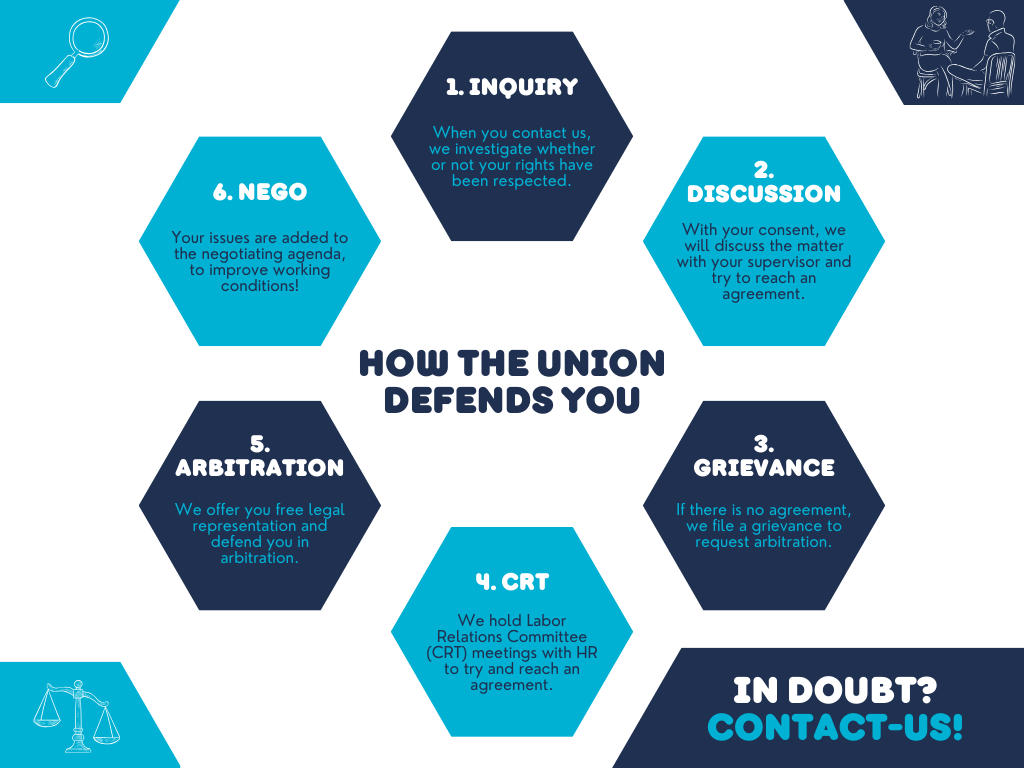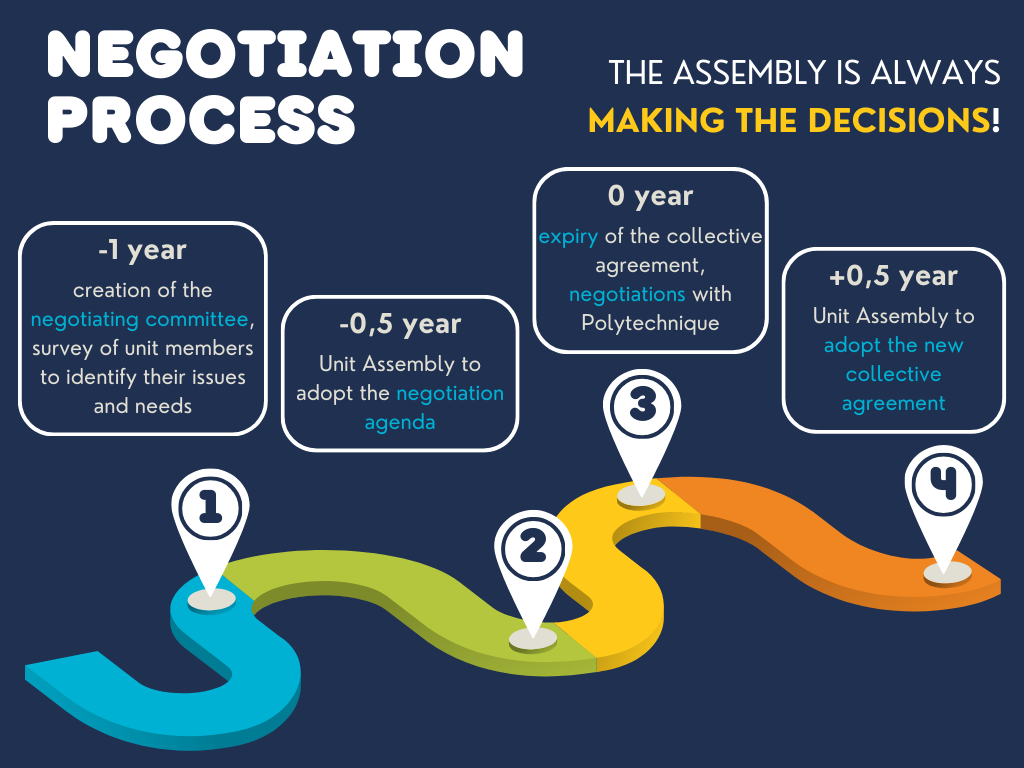
Throughout the year, ASSEP is here to :
- ensure that your rights, as defined by the Labor Code and your collective agreements, are respected
- mediate, to represent or accompany you in the event of conflicts or questions to be asked of your supervisor
- provide free legal support
- improving your rights through the negotiation process
If you have any doubts or questions, contact us!
| Position | Contact |
|---|---|
| General information | assepinformation@gmail.com |
| Labour relations for lecturers | assep.cc@gmail.com |
| Labour relations for teaching assistants and persons in charge of practical work | assep.ae@gmail.com |
| Labour relations for post-doctoral researchers | assep.postdoc@gmail.com |

Our goal is to find out whether or not your rights have been respected. Your rights are established by your collective agreement and by Quebec law.
During our inquiry, we’ll ask you for precise facts: keep all written exchanges, and let us know any dates or figures that might be relevant!
Please know that even if your rights have been respected, if there’s still an unresolved issue for you, we’ll put it on the next bargaining agenda.
- The Law on Labour Standards and other laws and regulations are available on the CNESST website.
With your agreement, we contact your supervisor or any other relevant person to point out the non-respect of your rights and try to find an amicable solution. We can also organize mediation meetings.
Sometimes, simply pointing out that there has been a failure is enough to resolve the situation!
Depending on the situation, we may advise you to take legal recourse by filing a grievance. A grievance is a document that establishes that a right has not been respected and calls for legal arbitration. Depending on the situation, a grievance can be :
- personal: for you only
- union: for a group or all the members of a unit
Grievances are drafted by an elected representative of ASSEP (such as your Labour Relations representative), with legal consultation as required. A grievance is typically structured as follows:
- identification of the parties
- exposure of the facts
- reminders of the relevant articles of the collective agreement and the law
- request formulation
- signature of complainant
The legal time limit for filing a grievance is calculated from the day of the facts or the day the complainant (you!) becomes aware of them:
- lecturers and post-doctoral researchers:
40 days - teaching assistants and persons in charge of practical work : 75 days
A grievance may be withdrawn at any time, particularly in the event of an out-of-court settlement.

The ASSEP, via your unit’s labor relations representative, participates in Labor Relations Committee (“CRT”) meetings with Polytechnique’s Human Resources department.
At these meetings, we explain the issues faced by our members and current grievances, and try to find an amicable solution.
The arbitrator is a person appointed jointly by the employer and the union, or failing that by the Ministry of Labour.
Unfortunately, there are currently too few people available to arbitrate, so waiting times are long: from several months to several years. The arbitration procedure involves the following steps:
- exchanges to clarify the facts
- waiting for arbitration date
- arbitration
- decision rendered by the arbitrator
- possible appeal of the decision
Arbitration takes place at Polytechnique, with the following in attendance: procurator, representatives, witnesses (Polytechnique and ASSEP side), member who filed the grievance, observers.
The person who filed the grievance is protected :
- legal representation is free of charge
- any discrimination or harassment of our members is prohibited (article 6.01 of the collective agreements)
Any issues encountered by our members can be used to highlight shortcomings or inaccuracies in the collective agreements. They are therefore considered as a basis for the bargaining agenda!

The persons elected by the Assembly on the Bargaining Committee, the coordinator and the labor relations representative of the unit (see Executive Committee).
Of course! In the union, the members’ Assembly (you!) is always the decision-maker.
As part of the negotiation process, the Bargaining Committee will ask you to express your opinion at key moments:
- at the start of the committee’s work, via a survey to find out about your needs and issues
- at the Unitary Assembly, where the negotiation agenda is presented and voted on (debates and amendments are always possible)
- during the negotiation process if necessary
- at the Unitary Assembly for the adoption of the new collective agreement (possible return to negotiations)
Not always, since anyone elected at ASSEP must defend the interests of its members.
In particular, the members of the negotiating committee defend what was decided at the Unitary Assembly. In such cases, they have a duty to negotiate in accordance with what the Assembly, i.e. the greatest number of members, has requested.
